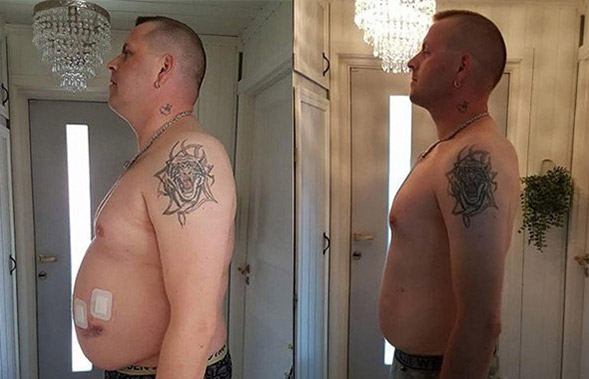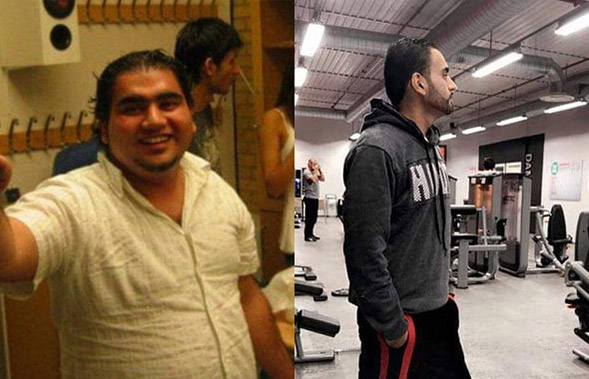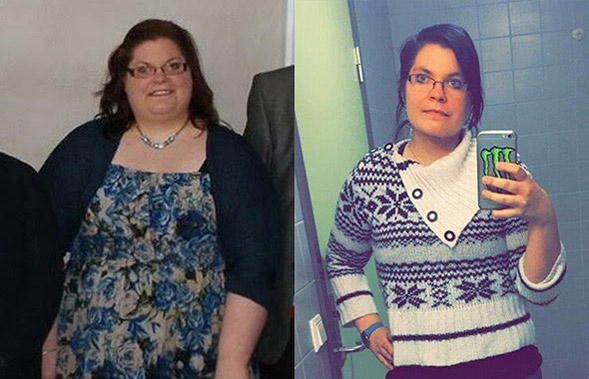Mona Karlsson – Patient Coordinator

Hi there, my name is Mona and I am very proud to say that I am a Patient Coordinator at Overvekts Operasjoner Riga. I’ve also had a Gastric Bypass with our outstanding Surgeon and am absolutely delighted with the whole experience. I lost my weight and slimmed down to my target weight within the first year! I would like to guide and help you with your special journey based upon my own experience of weight loss surgery.
I look forward to hearing from you.
Mona
Dr. Igors Troickis – Leading Bariatric Surgeon, 25 years experience, over 500 procedures annually

A highly acknowledged surgeon, with 25 years experience in general surgery and over 12 years experience in bariatric surgeries.
Head of Surgery Department at Riga hospital.
The surgeon performs over 500 procedures annually.
Specialities:
· Gastric Bypass, Mini Gastric Bypass
· Gastric Sleeve, Gastric Band removal
· Revisional Bariatric Surgery
| Gastric Balloon | BMI 27+ |
| Gastric Sleeve | BMI 30+ |
| Gastric Bypass | BMI 35+ |
Choose the procedure that suits you best
Weight: Kg | Height: cm |
10 Reasons to choose us
Efficient appointment system
We will endeavour to accommodate your needs when arranging appointments. Our surgeon will review your medical documentation and health questionnaire to assess your suitability for a surgical procedure, we then aim to offer you an acceptance for surgery date within one to two weeks.
A private contemporary surgical centre
Our clinic is designed to emulate the most modern medical institutions in Europe. Hotel style accommodation is offered, with a flat screen television, wifi and air conditioning to ensure a comfortable stay. There is the opportunity for a friend or a member of your family to stay with you in your private room, if necessary.
Extremely experienced surgeons and medical team
Our senior surgeon, who specializes in bariatric surgery, has over ten years experience in this field, and twenty five years experience in general surgery. The medical staff and surgeons have vast experience and knowledge.
Finest quality surgical equipment
The equipment we use is of the highest proven quality, it is supplied by: Storz, Johnson & Johnson, Ethicon and Covidien. We have opened four new operating theatres, which have been designed and equipped to the highest standard.
5 year follow up
We offer a five year follow up programme for patients who have undergone Gastric Sleeve or Gastric Bypass surgery and a one year follow up programme for patients with a Gastric Balloon. Our patient coordinator will be available to answer questions via email or telephone.
Half the price of Norway surgical treatment
With us you get the same (or an even better) service than that of a private clinic in Norway, for half the price. For approximately half the cost, we can offer a similar or a better service than most private clinics in Norway.
English speaking medical personnel
Our doctors, nurses and the other medical personnel speak English fluently.
Twenty four hour care
Medical care, given by doctors and nurses, is available on a twenty four hour basis.
Direct flights from Norway to Riga
There are direct flights from the Norway to Riga (RIX)., Norwegian Air fly from Oslo, Trondheim and Bergen. Wizz Air fly from Sandefjord. Flight connections are also available from the rest of Norway through hub in Oslo.
Surgeon’s liability insurance
A Surgeon’s liability insurance of 30 000 Euro is provided for the bariatric surgeons operating at our clinic.
BMI Range
Enter your body profile details to calculate the result.
Following gastric bypass surgery, proper nutrition is crucial. This will include the need for special gastric bypass diet recipes, as well as the need to take supplemental vitamins every day without fail.
The exact list of vitamins a person will need to take as well as the precise amounts may vary a bit from patient to patient, but all patients will be taking more or less the same vitamins for the same reasons. Failing to follow your doctor’s advice when it comes to gastric bypass vitamins and supplements can and will have lasting and perhaps dire consequences. Below we’re going to examine the best vitamins for gastric bypass patients and what makes them so.
The Reason for Taking Gastric Bypass Vitamins and Supplements
Vitamin absorption after gastric bypass is a serious issue, so it’s vital that you develop proper eating habits to achieve your weight loss targets while maintaining optimal health. In the immediate aftermath of surgery you’ll be limited to only drinking water at first, then when the doctor feels you’re ready you can graduate to low-sugar liquids. As the stomach heals and normal gastric function is re-established you will gradually return to a succession of increasingly “normal” foods. However, because your new stomach is limited in size, you will be unable to ingest and absorb all the vitamins your body needs from the food you eat. Therefore you will need to know what vitamins to take after gastric bypass surgery to fill the nutritional void and why.
Multivitamins
Studies conducted on patients who have had gastric bypass surgery indicate that, while the diet of these people tends to be much healthier in the wake of the procedure, none of them – that’s 0% – get all the vitamins and minerals they need strictly from the food they eat. Most have significant deficiencies in vitamin A and vitamin C intake as well as shortfalls in the amount of calcium, iron, B1, B3, B6, B12 and other vitamins and minerals they should be getting. As such the vitamins for gastric bypass patients list will include foundational multivitamins as well as supplemental vitamins and minerals above and beyond what you’ll get from a simple multivitamin. It’s crucial you don’t ignore these additional supplements.
Because vitamin absorption after gastric bypass can and often does vary from patient to patent, the exact type of multivitamin you are advised to take will likely depend on the specifics of your procedure. Most are advised to take a multivitamin that provides 100% of the recommended daily value for all essential vitamins and minerals to prevent gastric bypass vitamin deficiency.
Calcium
As we indicated in most cases, you’ll be advised to take individual vitamin and mineral supplements to augment the baseline dosages you’re getting from your multivitamin. One of the most important of these is calcium. There are some important reasons for patients who have had gastric bypass surgery to take supplemental calcium including:
– To prevent fractures – A study conducted on nearly 100 patients who had undergone this type of surgery over a 20-year span revealed they had experienced bone fractures at a rate twice as high as would be expected in the general population. To researchers this was a clear indication that people who had undergone bariatric surgery were not getting enough calcium from their regular diet and highlighted the importance of supplemental calcium.
– To prevent hyperparathyroidism – Hyperparathyroidism is a condition that is relatively common in people who have undergone bariatric procedures. Lacking sufficient calcium, their thyroid glands lose the ability to maintain proper blood calcium balance. This can cause the onset of an array of conditions including osteoporosis and vitamin D deficiency. The best way to stave off this condition is to take supplemental calcium immediately after the bariatric procedure.
Vitamin B12
Stomach acid is vital to the absorption of B12 as it acts to release this vital vitamin from food products. In the wake of bariatric surgery, and in the wake of gastric bypass surgery in particular, the stomach’s ability to process B12 can be significantly reduced. Therefore taking vitamin b12 after gastric bypass surgery is often recommended. In some patients the need may be so acute that they are required to take B12 injections. With gastric bypass vitamin B12 is important for a number of reasons:
– It reduces your risk of Pernicious Anemia – With Pernicious Anemia your body is unable to generate a sufficient quantity of new healthy red blood cells. A vitamin B12 deficiency can lead to the development of this condition.
– It enables you to maintain energy levels – People who suffer from a vitamin B12 deficiency often complain of feeling tired and sluggish. These symptoms are fairly common in people who have undergone bariatric procedures but have not taken supplemental B12.
– It can reduce your risk of heart disease – Taking vitamin b12 after gastric bypass can help reduce homocysteine levels in your body which is an important step in preventing the onset of heart disease.
– It promotes mental and emotional stability – Vitamin B12 is also important for proper brain function and not getting enough of this important vitamin can lead to bouts of emotional instability, confusion, difficulty concentrating and overall reduced mental acuity.
Iron
Not only will patients experience vitamin deficiency after gastric bypass but the surgery can also result in lower iron levels in the blood. This is primarily because the duodenum where iron is absorbed from foods like meat, grains, and legumes is one of the areas bypassed during the procedure. As a result, most doctors will recommend that those who have undergone gastric bypass surgery take supplemental iron to ward off a deficiency and prevent the development of anemia. Some patients believe their multi provides them with 100% of the iron they’ll need and neglect to take additional iron as directed by their doctor. This is a mistake. The 100% claim on the multivitamin does not take into account bariatric procedures that can cause iron levels to plummet.
What are some symptoms of iron deficiency?
Iron is one of the minerals that plays a foundational role in your body. Beside anemia insufficient iron can also contribute to hair loss and skin problems. Symptoms of iron deficiency are more prevalent in women who have had bypass surgery than in men, although they can occur in both, and include:
– General fatigue.
– Muscle weakness.
– Headaches.
– Lethargy.
– Hair loss.
– Rapid heartbeat.
– A pallor to the skin.
– Brittle finger and toe nails.
– A craving for ice.
– Shortness of breath.
– Chest pains that may mimic heart attack symptoms.
If your doctor prescribes supplemental iron make sure you take it.
Vitamin D
As noted above vitamin d deficiency is often linked to calcium deficiencies in the wake of bariatric procedures. That’s because vitamin D actually helps the body absorb calcium and distribute it to the bones. Vitamin D plays several other crucial roles including promoting proper growth and development and bolstering the immune system. Vitamin D is absorbed from food but is also generated by exposure to the sun. Because of its link with calcium a lack of vitamin D can cause bones to become weak and brittle. Therefore doctors commonly prescribe supplemental vitamin D for post-operative bariatric patients. Some observed effects of insufficient vitamin D levels are:
– Lower energy – Vitamin D shortfalls commonly lead to feelings of fatigue, complaints of exhaustion as well as unpredictable changes in mood. Depression is another common side effect of low vitamin D levels and one that also has an enervating effect on energy levels. It has been observed that the prevalence of seasonal affective disorder also seems to increase when vitamin D levels are low and that vitality, in general, is sapped. It is possible that some who undergo bariatric procedures may be able to boost vitamin D levels through increased exposure to sunlight but that, of course, carries its own risks.
– Osteoporosis – Because of the vitamin D/calcium link noted earlier those who experience reduced vitamin D levels in the wake of gastric bypass surgery are susceptible to developing osteoporosis. A paucity of vitamin D in the system leads to poor bone development in younger people and poor bone strength in older adults as their skeletal mass gradually shrinks. Fractures then become more common and take longer to heal as well.
– Hypocalcaemia – Hypocalcaemia, is the state of having low blood calcium. While this condition is not common in patients who have undergone gastric bypass metabolic changes with regard to vitamin D and calcium nonetheless make it a possibility.
Thiamine (B1)
Thiamine deficiency often occurs in patients who have undergone gastric bypass surgery for one of the following reasons:
Postoperative vomiting and nausea – While not everyone who undergoes a bariatric procedure will experience vomiting or nausea in the postoperative period some do, possibly as a result of complications or a change in eating habits. While gastric bypass diet recipes may go some way toward alleviating this situation protracted periods of vomiting can result in a loss of thiamine or vitamin B1. Some symptoms of thiamine deficiency are also commonly observed in patients who go through periods of high carbohydrate intake by way of intravenous hyperalimentation and other causes. Symptoms of thiamine deficiency include
– Indigestion
– Constipation
– Anorexia
– Weakness and/or numbness in the legs
– A general sense of malaise
– Rapid heartbeat.
Cases of severe thiamine deficiency are rare in bariatric patients but not unheard of. This is a serious condition that can lead vision problems, difficulty walking and changes in brain activity; all symptoms of Korsakoff syndrome and Wernicke’s encephalopathy. Those with extreme thiamine deficiency may not experience all of these symptoms concurrently however, making accurate diagnosis difficult. The best way to ward off these problems is to take recommended amounts of supplemental thiamine following surgery.
Protein Supplements
Protein deficiency following gastric bypass surgery is more common than most people think and can lead to serious health issues including protein malnutrition. Protein malnutrition may first make itself known by way of hair loss but that is only the beginning of the symptom chain. As the condition worsens patients will typically experience a loss of muscle mass and skin degradation. Going further some will experience what’s known as Kwashiorkor whose effects include irritability, anorexia, edema and enlarged liver. Other symptoms of chronic protein deficiency include lower body temperature, weaker pulse, constipation and lower metabolic rate.
Postoperative protein requirements for gastric bypass patients are in the neighborhood of 60 to 80 grams per day for women and 70 to 90 grams per day for men. Failure to reach these intake levels may result in the onset of symptoms noted above. Also, since a high intake of supplemental protein has been known to cause dehydration patients should be careful to drink plenty of water when taking supplemental protein.
Conclusion
There is simply no rational excuse for failing to heed your doctor’s advice when it comes to what vitamins to take after gastric bypass surgery. Those who have done so invariably acquaint themselves with the side effects outlined above which only makes their transition to a sustainable and healthy postoperative life all the more difficult. Don’t be one of the many who succumbs to the notion that they know best when it comes to what vitamins to take after gastric bypass surgery. A daily multivitamin, for instance, is almost never sufficient to compensate for the loss of vitamin absorption following bariatric procedures. The vitamins for gastric bypass patients list may be extensive but if your doctor recommends additional supplements, take them without debate or fail. Finally, you’ll be free to suspend the intake of supplemental vitamins and minerals when your doctor gives you the okay, not when you arbitrarily decide you’ve been taking them for long enough.
When it comes to a vitamins for gastric bypass patients list an ounce of prevention is indeed worth a pound of cure. It’s vital to your long-term health to understand that, following surgery, your risk of developing various vitamin deficiency-related problems will never completely go away. So stick to the gastric bypass vitamins and supplements prescribed by your doctor, be diligent in developing new dietary habits and enjoy your new life.





























